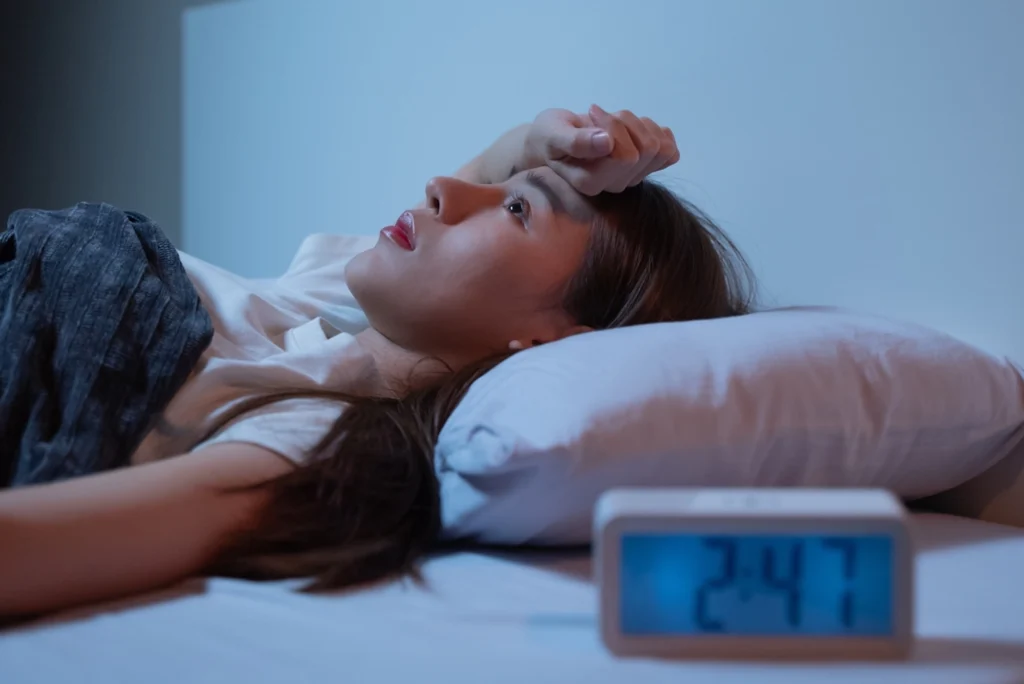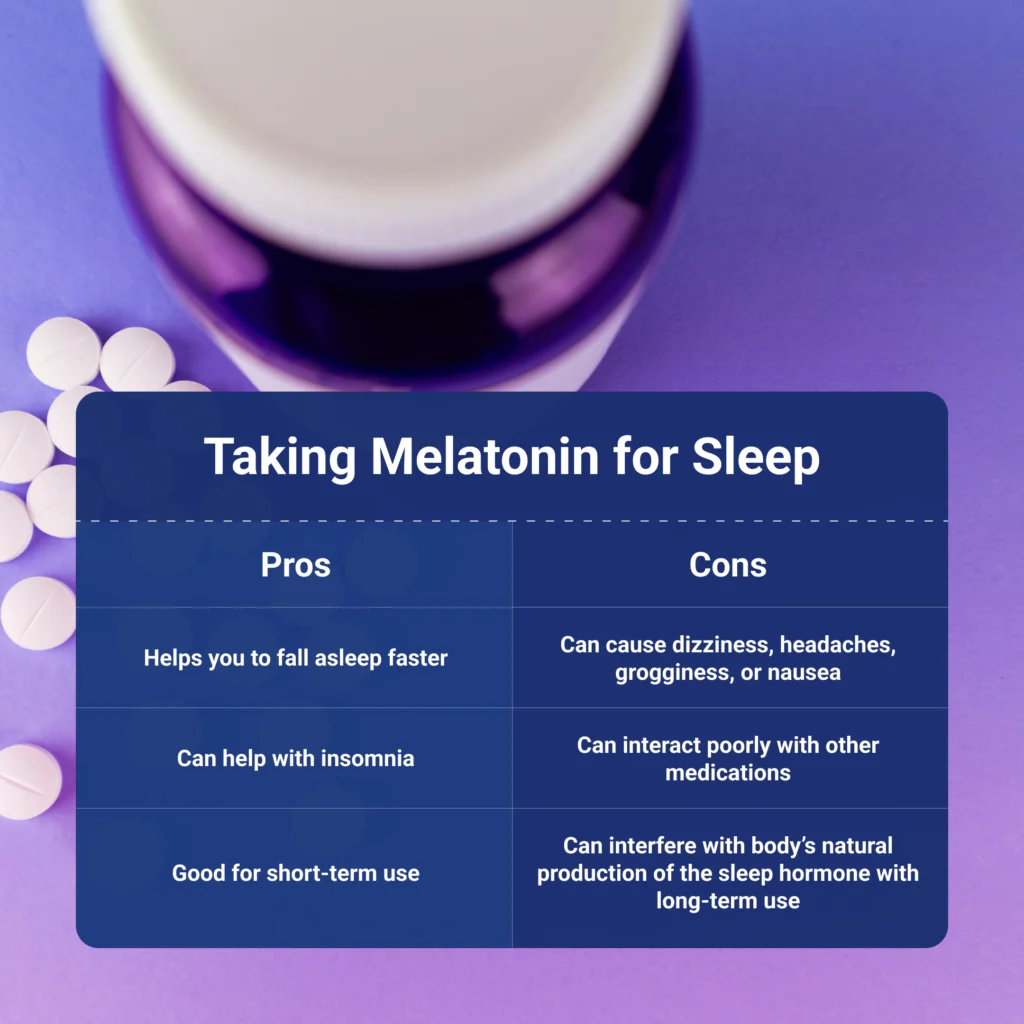GET MORE FROM YOUR MATTRESS
(AND YOUR MONEY)
Sign up for Email Updates!
- Discounts
- Tips
- Latest News
- New Products
Mattress sets starting at $499 plus FREE cooling and FREE delivery on select mattresses. Details.
Copyright © 2025. Texas Mattress Makers.
February 28, 2023 · 6 min read

Melatonin is a popular sleep aid supplement that has helped a plethora of people with a number of sleep problems — however, there are both pros and cons of taking melatonin that we think every sleeper should be aware of.
The term melatonin refers to the hormone that our brains produce as a response to darkness as a way to tell our bodies that it’s time to sleep. When it’s dark, we sleep, and when it’s bright, we’re awake. This hormone is critical in the process of keeping your internal clock (circadian rhythm) regulated so that you get the amount of sleep you need each night.
But what happens when we can’t seem to get to sleep? This is where melatonin as a sleep aid comes into play.

Can’t Get to Sleep?
The National Institute of Health conducted a study that measured the Melatonin use of more than 55,000 adults aged 20 and older over two decades. They found that the use of melatonin supplements by adults in the United States more than quintupled between 1999 and 2018. With approximately 19% of U.S. adults claiming that they do not get enough rest every night, it’s no wonder it has been flying off the shelves.
If you have trouble keeping a consistent sleep schedule or suffer from insomnia, popping a gummy or a tablet can help you get the shuteye you yearn for.
There are certainly many melatonin benefits that make it a popular sleep aid and a short-term solution for sleep problems. Here are some of the most common melatonin benefits:
Because sleep is crucial to our overall health, taking melatonin for sleep can help with managing immune function, blood pressure, and cortisol levels if taken as needed.
Is it okay to take melatonin every night? Regardless of what sleep issues you may be dealing with, most doctors will not recommend taking melatonin on a nightly basis. This is because there are numerous melatonin side effects that can affect your sleep quality if taken long-term.
Is there a downside to melatonin? All medications have their pros and cons, but long-term use can produce melatonin side effects that should not be taken lightly. Here is why you should refrain from taking melatonin supplements on a regular basis.
Bad sleep can impact every aspect of your life. Sleep affects mental health, your brain functionality, your mood, your energy, and more. Instead of popping a supplement every night, try to get to the root of your sleep problems. We guarantee that the cure is not at the bottom of the melatonin bottle.

If you are having trouble falling and staying asleep, there may be some underlying issues to address. You could be dealing with chronic insomnia, a disorder that melatonin supplements can’t cure, or it could be your lifestyle and/or sleep environment that is causing disruptions. If you believe you may be dealing with chronic insomnia, seek medical attention from a specialist who can help you.
If you have a high-stress lifestyle, getting the quality sleep you need can be difficult. We would recommend first trying out our tips for unwinding before bed. These strategies can help reduce stress and calm down your body and mind to prepare you for sleep. The problem could also lie in your sleep environment. Is your room too hot or cold? Are your pillows unsupportive?
Or is it your mattress? (Hint: it could be your mattress).
There are both pros and cons of taking melatonin, but the fact is that melatonin supplements cannot help you achieve quality sleep in the long run. There’s nothing wrong with taking a gummy when you’re feeling jet lagged, but don’t rely on it for rest. If you’re not getting enough sleep every night and don’t have any underlying medical issues, your mattress could be the problem.
At Texas Mattress Makers, we believe that finding the right mattress for your needs can help you get the best sleep possible. Wondering, “which mattress is best for me?” That’s where we come in. Our experts can assist you in finding your perfect mattress match. But if you need something a little more special, a custom mattress can improve your sleep quality immensely by addressing all of your needs at once.
If you’re ready to skip the supplements and finally get the best sleep possible, visit any Texas Mattress Makers showroom for a mattress shopping experience you’ll never forget. Sweet dreams may be one click or visit away.
More Helpful Articles by Texas Mattress Makers: